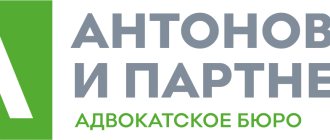Adoption is a procedure for placing minor children into a new family. The state considers the care of adoptive parents for a child to be the optimal form of upbringing (Article 124 of the Family Code of the Russian Federation). Legislation guarantees the protection of the interests of a minor, enshrining the secrecy of adoption.
Article 124 of the Family Code of the Russian Federation “Children for whom adoption is permitted”
Why protect the secret of adoption?
Disclosing confidential information about a child's adoption can cause harm to both the adult and the child. Firstly, this threatens to deteriorate the relationship between the adoptive parent and the adopted child, and secondly, it can cause deep mental trauma to the child.
The adoptive parent, when accepting a child into the family, fully replaces his parent, therefore, as a rule, he tries to ensure that as few people as possible know about this fact.
To ensure that the fact of adoption remains a secret, the legislation provides for a number of measures:
- The court hearing in which the issue of adoption is decided is closed;
- New data can be entered into the child’s documents, including about parents (if the child is 10 years old at the time of adoption, changes in his personal data are made only with his consent);
- There is criminal liability for disclosing secrets.
Illegal adoption actions
In order for a child to develop into a full-fledged personality, he must be raised in a family. If the natural parents cannot or do not want to raise him, then the optimal solution would be to give him up for adoption.
The law establishes a number of requirements for the adoption procedure:
- The adoptive parent must have a conclusion about the possibility of being an adoptive parent. That is, have an income of at least 2 subsistence minimums, have no diseases that prevent the fulfillment of parental responsibilities, have no criminal record, and have completed training at a school for surrogate parents.
- The adoptive parent can receive information about children who can be adopted into the family only through the guardianship department. Orphanage specialists do not have the right to tell or sell information about their children.
- The child's parents must consent to the adoption. Without consent, the procedure can be carried out if the parents are deceased, deprived of parental rights, declared missing or unknown.
- A child over 10 years of age must consent to adoption.
If a specialist involved in the field of adoption or an adoptive parent violates them, they may be held liable for illegal adoption.
The following are considered illegal adoption actions:
- Issuing a conclusion on the possibility of being a candidate to a citizen who does not meet the requirements of the law.
If a citizen did not submit documents on income, health or other necessary documents, did not go through the school for adoptive parents, and a specialist from the guardianship department issued an opinion, then the specialist committed an offense. If a citizen presented forged documents on the basis of which the conclusion was issued, then the citizen committed an offense. - Violation of the order of candidates to meet a child.
For example, in accordance with Art. 61 of Order of the Ministry of Education of the Russian Federation No. 300 of 2021, priority in obtaining information about a child is given to the citizen whose information was registered earlier. That is, if a child is given up for adoption to citizens in violation of the established order, the specialist has committed an offense. - Selling a child under the guise of adoption.
Sale refers to the registration of consent for adoption in the name of a specific citizen in exchange for a certain amount of money or other material benefits. - Transferring a child for adoption without parental consent (in cases where parental consent is required).
If a married woman gave birth to a child in a maternity hospital and wrote a refusal, then transferring the child for adoption is possible only after receiving a refusal from the father (her official spouse). - Trading in information about children who are up for adoption.
Information about children who can be adopted can only be obtained from a specialist in the guardianship department, a regional or federal operator. You can get it for free by contacting the organization in person or by phone. Employees of children's organizations cannot disclose or sell it. - Transferring a child for adoption to foreigners, although Russian citizens were not familiar with information about him.
A child can be put up for adoption to foreign citizens 1 year after information about him was received by the regional operator. During this time, several Russian families should get to know him and refuse adoption. - Transferring a child for adoption to citizens of the United States or other countries whose adoption is prohibited.
Corpus delicti
Disclosure of the secret of adoption is a crime against family and minors and is contained in the relevant chapter of the Criminal Code. Let us consider in more detail the composition of this crime.
An object
The object of the crime refers to those direct relationships or interests that are encroached upon by the criminal act. In the event of disclosure of the secret of adoption, the object is the interests of the family, minors, parents, everyone's right to privacy and family secrets. more information about invasion of privacy and the article under which liability arises.
Subject
Additionally,
the crime of disclosing the secret of adoption is not considered committed if this information was received by the authorities, whose duty is also to maintain the secret. For example, a teacher sent a letter to the guardianship and trusteeship authorities, in which he mentioned the fact of adopting a child from his class. In this case, the teacher is not the subject of an offense, because the information was not disclosed to either the child or third parties.
It is possible to hold accountable under this article both persons who are required by law to keep information about adoption secret (special subject), and ordinary citizens who, under various circumstances, learned about adoption (general subject). In any case, the offender must be at least 16 years old at the time the crime was committed.
Special subjects include:
- The judge who participated in the adoption decision;
- Court secretary and assistant judge;
- Any other court employees who, for any reason, could have access to this information (for example, office workers);
- The prosecutor involved in the case;
- Other employees of the prosecutor's office who may have seen the court decision or knew about the hearing;
- Employees of guardianship and trusteeship authorities;
- Civil registry office employees who register the fact of adoption make changes and issue a birth certificate.
Common subjects may include:
- Teacher,
- A kindergarten teacher,
- Relative of the adoptive parents,
- Adoptive family neighbor
- Any other person who in one way or another became aware of information about adoption.
The degree of responsibility for disclosing the secret of adoption among general and special subjects differs on the subjective side.
Subjective side
For actions to be recognized as a crime, they must be committed with direct intent (you can familiarize yourself with the concept of direct intent in criminal law). That is, when disclosing information, the subject must understand that he is revealing a secret against the will of the adoptive parents. If another person, at the request or with the consent of the adoptive parents, provides such information, these actions do not constitute a crime.
In order to bring to criminal liability persons belonging to special subjects, simple intent is sufficient. At the same time, for persons from among the general subject, a special goal is also necessary: selfish or other base motives (jealousy, anger, etc.).
Objective side
The objective side, that is, actions that directly fall under the crime, is, in particular, information about the fact of adoption to other persons or one person (including the adopted person) in any way (during an oral conversation, in writing, publication on social networks, the media and etc.). The important point is that the information must be disseminated to a person who is not required by law or official duties to keep it secret.
What it is
Secrecy is the concealment of information, the dissemination of which could cause undesirable consequences. The Family Code of the Russian Federation prohibits persons associated with the legal transfer of a child to adoptive parents from disclosing any information about this fact (Article 139). Legislation guarantees a minor and his adoptive parents the right to maintain the secret of adoption. The child needs to be sure that he is surrounded by close people.
The following information is considered confidential:
- time of birth of the baby;
- date and place of adoption;
- medical information about the child’s health status;
- personal data of biological and adoptive parents.
The adoption procedure for minors over 10 years of age is carried out only with their consent.
Who can't adopt a child?
Maintaining secrecy is also not required if the new family does not hide the lack of consanguinity from the children.
Article 139 of the Family Code of the Russian Federation “Secret of child adoption”
How to prove a crime has been committed
Another secret
Secret information that also affects the personal life of a citizen and is protected by law includes medical confidentiality. The concept of “violation of medical confidentiality” includes disclosure of a diagnosis (especially significant for a person when they find out his HIV-positive status), dissemination of information about mental health, the results of diagnostics, tests, and prescribed treatment. You can read about responsibility for disclosing medical confidentiality in the article https://lexconsult.online/6340-ponyatie-vrachebnoi-tainy-nakazanie-za-ee-narushenie.
The elements of the crime provided for in Article 155 are formal, that is, immediately after the disclosure of information to any person, the crime is already considered completed, for this there is no need to wait for certain consequences to occur.
Proving the fact of disclosure of secrets in practice is quite a difficult task. The situation is especially difficult with proof of the vile intentions of the offender.
First of all, in order for the disclosure of the secret of adoption to be punished by law, it is necessary to find the person who disseminated the information. The involvement of a specific person in a crime can be proven using the testimony of witnesses (the adopted person or strangers to whom the information was communicated) or documentary evidence:
- Recording a conversation;
- Letter;
- SMS message;
- Post on social networks, etc.
Rules governing the issue
The Family Code developed in our country described in great detail family relationships, as well as actions in the adoption system, in particular, Article 139 fully discloses these relationships, the rights and obligations of the parties and possible liability for non-compliance with the rules.
Article 139 of the Family Code states that the following people do not have the right to advertise the secret of adoption:
- The judges who made the verdict and the employees of this court, who are also considered witnesses.
- Officials who were directly involved in the registration of adoption.
- Medical workers Institutions that faced this case.
The Criminal Code is also directly related to the secrecy of adoption, where there are articles regarding this situation. In particular, Art. 155 The Criminal Code of the Russian Federation will publish people who may be responsible in this case. This includes:
- People who, in the course of their professional activities, have encountered the mystery of adoption.
- Selfish people who may divulge a secret or for other base reasons.
Such measures are carried out if the adoptive parent wishes not to disclose the secret of adoption. If the adoptive parent does not want to keep the adoption secret, and this is provided for in paragraph 2 of Article 139 of the RF IC, then these protection measures are canceled.
Punishment
A court that has determined that the secret of adoption was disclosed by a person contrary to the law may impose the following punishment on the offender:
- Fine of up to 80 thousand rubles;
- Community service up to 360 hours;
- for no more than 1 year;
- Arrest up to 4 months.
In addition to the penalties above, the court may prohibit a person from engaging in certain activities or holding certain positions for 3 years or less.
Questions about maintaining and disclosing the secret of adoption are discussed in the following video
Qualifying features
Based on the text of Article 155 of the Criminal Code of the Russian Federation, disclosure of the secret of adoption is any information regarding the fact that certain citizens are not the biological parents of the child, contrary to the will of these citizens.
The main sign of an offense is the disclosure of the fact of adoption to people who are not obliged to keep it secret.
The law motivates the criminal prosecution of persons who revealed this secret as follows: the news can be traumatic for all family members, turn into a psychological shock for the child and prevent the formation of a harmonious microclimate in the social unit.
Arbitrage practice
Today, cases of disclosure of adoption secrecy are rare in Russia. Here is one example of such a case.
Since childhood, the girl Anya has been characterized by increased activity and excitability. At school, the baby was recommended to visit a psychologist, to which her parents agreed. After one of the sessions, the girl returned home in shock. From a psychologist she learned that her parents were not her own.
Later, the school specialist admitted that she really revealed the secret of adoption to Anya, since this, in her opinion, should have helped in treatment. In fact, this information harmed the girl; she had to undergo a long rehabilitation, since at that time she was not yet ready for such information.
The court imposed a fine on the perpetrator of the crime and prohibited her from working in her specialty in schools for 3 years. In addition, Anya’s parents were able to demand small moral compensation from the psychologist in court.
On issues of liability for disclosing the secret of adoption, a lawyer will advise you in the comments to the article
The difference between illegal adoption and substitution
As judicial practice shows, confusion often arises when classifying a crime if the crimes have similar characteristics.
For example, if a child from a maternity hospital was given up for adoption without the consent of the parents and replaced with another child, is there a substitution or illegal adoption? Of course, these crimes have a number of similarities. The object in both cases is the family, the child, the parents, and the norms of the law. But with a replacement, the child can only be a newborn. It is not possible to replace an adult child.
On the subjective side of substitution, there is direct intent. Substitution can be made out of self-interest, revenge, envy or hooligan motives. Illegal adoption is also carried out out of direct intent (for selfish motives) or through negligence (for repeated violations).
Lawyer's comment: when necessary, you can lie
Natalya Karagodina, a lawyer, teacher at the school of adoptive parents, herself an adoptive parent, reminds that in discussions about the secrecy of adoption, one should be guided primarily by the interests of the child.
“In kindergarten, a mother can say whatever she considers necessary, or say nothing, explaining that this is only her personal business. But since such mystery will only arouse curiosity and give rise to various and implausible conclusions, I propose two ways, depending on the situation.
If the kindergarten is ordinary and the questions are also ordinary or due to the idle curiosity of the staff, say within reasonable limits what the mother considers necessary (and even lie if she so desires).
If the questions are determined by the profile of the kindergarten (speech therapy, special, and the child suffers from some kind of disease), then the questions should be answered in accordance with the interests of the child, but at the same time it is clearly, clearly and strictly announced that none of the staff has the right to disclose information. From experience I can say that, as a rule, information does not really go beyond the circle of officials,” comments Natalya Karagodina.
At the FMS, Natalya Karagodina advises writing that the child changed his last name, and if you need to indicate the reason, then write that too.
“When adopting in orphanages, a medical card is issued not from the orphanage, but from a friendly clinic, precisely in order to protect the interests of the child. You can ask to do this. However, it may matter to the doctor whether the (blood) parents had allergies if the child, for example, has atopic dermatitis. Everyone has genetics, not only adopted children, but for some reason it is assumed that everyone is fine with genetics, but the opposite is true for orphans. Doctors’ questions about heredity are most often not idle,” says the lawyer.
When registering a child, the Housing Office can present only a birth certificate (this is what confirms the relationship) and no further explanations about the origin of the child can be given.
“I am powerless to even imagine in what other cases facts may emerge indicating that the child is adopted. We are all registered and under the supervision of law enforcement, border, migration and other authorities. From birth to death we are registered, registered, registered, and so on. From a legal point of view, an adopted child has the same rights as a natural child, but the fact that he was given birth to by another woman from some father cannot be ignored, changed or destroyed,” the lawyer emphasized.
However, everyone who has access to this fact (employees of the orphanage, employees of the court, prosecutor's office, guardianship authorities, registry office, and so on) does not have the right to disclose it.
“All my experience as a family affairs specialist suggests that it is better for the child to know that he is adopted. I have encountered too many negative manifestations of a lack of knowledge about this, and they always played to the detriment of the family,” concludes Natalya Karagodina.
Secret protection: underage
Elena Smirnova, director of the Sozidanie charity foundation, adopted little Vasilisa relatively recently and makes no secret of it. Elena Smirnova’s friend feed on Facebook follows the baby’s first successes, her first “mother” and her smiles.
“First of all, I understand that no one will ever be able to save it. At the school of foster parents we were also told that there has never been a case where there were not kind people who would tell, or a piece of paper from which everything would become clear. Secondly, I am a fairly public person, and I would definitely never be able to keep a secret. Thirdly, I have four fairly young children of my own, and sooner or later they would have told us how we went to pick up our daughter, etc.” – Elena Smirnova explained to Miloserdiyu.RU.
Psychologists talk and write a lot about how difficult it is for children to grow up with a secret adoption, when some important topic (infancy, birth, orphanhood) is taboo, when a skeleton is hidden in the closet. But even if the parents decide that they will not keep the adoption secret, they have the right to decide how and when to tell the child about it.
“This is the choice of the parents - therefore only parents, immediate relatives, the guardianship service and the judge, the registry office where the birth certificate is changed, and that’s all. Certainly not everything in a row,” says Elena Smirnova. “Maybe the parents want it to be a little secret within the family: to tell the child, but not to all the nurses.”
In the meantime, Elena is forced to report Vasilisa’s origins on almost every corner. “The medical card in our case (I don’t know about others) is replete with information that the girl was taken from an orphanage; this is mentioned in every record of an examination at home. Even an extract from the orphanage is pasted in. I can’t say that this is terrible in my case, but it is a violation of the law,” Elena Smirnova is surprised. Elena is already accustomed to the fact that almost every nurse looks at the mother of four natural children, who adopted a girl, as if she were insane, and talks about “genetics” and how it “usually” ends.
“I adopted a child alone: my husband, given his employment, would never have collected all the necessary documents. This may be an individual situation, but not unique. As a result, in all authorities, where they see that I am married, and the child has a dash in the “father” column in the documents, I have to explain everything. When I enrolled my daughter in kindergarten, I didn’t want to show the adoption documents at first, but then they tried to register me as a single mother, although in reality I am married according to my passport,” says Elena Smirnova.
Another problem arises in the Federal Migration Service. When you issue a foreign passport for your child, how do you answer the question whether he changed his full name? Lie (thereby breaking the law, because you sign there that all the data is correct) or violate the secrecy of adoption by writing both old data and new ones? The previous last name and first name do not fit into the passport, but they remain in the database forever.
“Since there is a law on the right of parents to keep the secret of adoption, it must be respected. Our officials of all stripes and doctors, workers of children’s institutions are not trained to work with adoptive parents,” Elena Smirnova formulates the problem.








